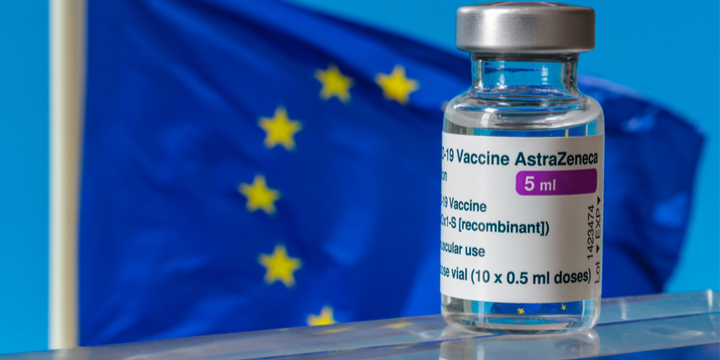“The terms of the contract (signed by Brussels on behalf of the member states) were not respected and the company was not in a position to implement a reliable strategy to ensure on-time deliveries “, said a spokesperson for the European executive.
AstraZeneca delivered in the first quarter only 30 million doses to the EU out of the 120 million contractually promised. In the second quarter, it intends to provide only 70 million of the 180 million initially planned.
Read also: AstraZeneca vaccine: we explain why the benefit / risk balance is favorable
The laboratory’s response
The Swedish-British pharmaceutical group AstraZeneca has deemed “unfounded” the lawsuit launched by the European Union on the delays in delivery of its anti-Covid vaccine, against which it promises to “firmly defend itself”.
AstraZeneca says it has “completely respected” the contract signed with Brussels and is on the verge of delivering 50 million doses by the end of April, in accordance with its forecasts. The laboratory hopes to have “the opportunity to resolve this dispute as soon as possible,” according to a statement.
“Vaccines are difficult to manufacture, as the problems encountered by several groups in Europe and around the world have shown. We are making progress in meeting technical challenges and our production is improving,” argues the laboratory. But he specifies that it will take time before being able to increase the number of doses to be distributed.
A contractual number of doses
The EU contract with AstraZeneca, a censored version of which has been made public, is a contract under Belgian law. He specifies that the laboratory, the Commission and the States undertake to settle any possible dispute “before the exclusive jurisdiction of courts established in Brussels”.
“What matters to us in this matter is to ensure that there is a rapid delivery of a sufficient number of doses to which European citizens are entitled, and which were promised to us on the basis of the contract”, argued the spokesperson for the Commission.
An “obligation of means”
In this civil action, which would take several months, the Europeans “should request either the termination of the contract for non-performance, with damages, or the performance of the contract (the deliveries), which is unlikely”, considered last week Belgian lawyer Arnaud Jansen, who studied the contract with De Bandt law firm.
The clause in which the laboratory commits to the “best reasonable effort” in this contract, that is to say an obligation of means, “should be at the heart” of the case, according to him.
Very strong international demand
AstraZeneca should argue for its part that it had other contracts to honor with the United Kingdom where the vaccine was authorized at the end of December, a month earlier than in the EU, according to the same source.
The Commission already activated on March 19 a contractual dispute settlement procedure to resolve the conflict with AstraZeneca, and announced that it had not activated the option the EU had in the contract to purchase an additional 100 million doses .
 Cherry tomatoes contaminated with salmonella: 92 sick and 1 dead
Cherry tomatoes contaminated with salmonella: 92 sick and 1 dead  A better coaching method can make a person grow
A better coaching method can make a person grow  What is the method to prevent diabetes in children?
What is the method to prevent diabetes in children?  What are the effective factors in causing stomach ulcers?
What are the effective factors in causing stomach ulcers?  Why do embarrassing memories seem to appear at night?
Why do embarrassing memories seem to appear at night?  The amazing link between SARS-CoV-2 infection and newly started diabetes
The amazing link between SARS-CoV-2 infection and newly started diabetes  WHO says monkey pox is not a global emergency right now
WHO says monkey pox is not a global emergency right now  Single cell RNA sequencing uncovers new mechanisms of heart disease
Single cell RNA sequencing uncovers new mechanisms of heart disease  Hepatitis of unknown origin: 3 new deaths and 228 cases worldwide
Hepatitis of unknown origin: 3 new deaths and 228 cases worldwide 